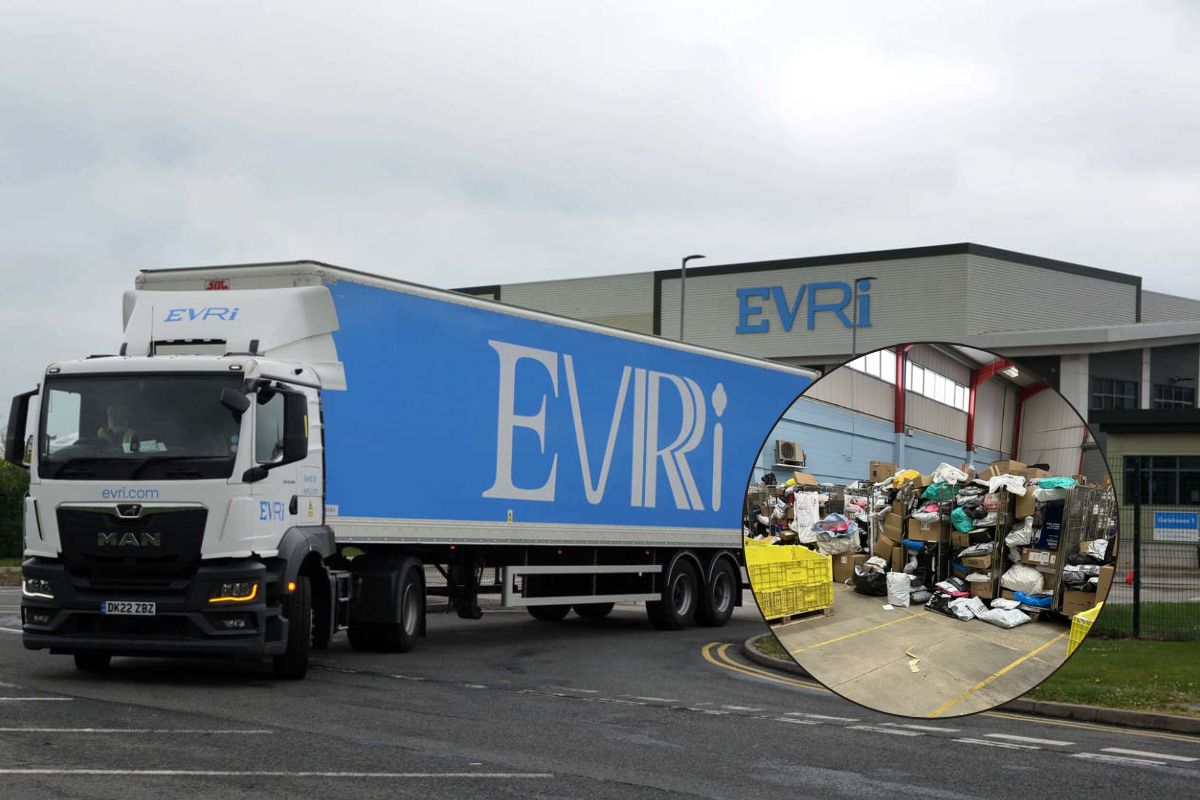The “solution” to Evri’s notorious home delivery problems from those “in the know” has always been simple: just get your parcel delivered to a ParcelShop instead.
But there’s a growing problem with this advice, retailers are getting fed up with being Evri’s unpaid customer service department and are walking away in increasing numbers.
Big names like Tesco are now walking away and the latest to throw in the towel is Londis Solo Convenience in Glasgow, whose owner Natalie Lightfoot has ended a decade-long membership of Evri’s ParcelShop network after describing the arrangement as “untenable.”
Her decision highlights a brewing rebellion among convenience store owners who are discovering that hosting ParcelShops creates more problems than profits.
The Economics That Don’t Add Up
Lightfoot’s store was processing more than 100 parcels daily, but at just 20p commission per parcel, the numbers simply don’t work. As she pointed out on LinkedIn, the reality of running a ParcelShop involves far more than just accepting packages.
“Parcel customers needed a lot of additional support to even print their labels, type their own details into the tablet or figure out who they were returning to which we would obviously provide, but for 20p a parcel it is no longer worth it,” she explained.
“It takes man hours upon man hours to assist. Interfering with the practices in-store, we need to pay the bills.”
The myth that parcel services drive profitable footfall has also been thoroughly debunked by Lightfoot’s experience. Rather than browsing the shop while collecting parcels, most customers simply “run for the hills after hurling the parcel at the counter.”
For a business trying to maintain high standards of customer service, dedicating staff time to essentially provide free technical support for Evri’s systems while earning pennies per transaction has become an impossible proposition.
The Catch-22 Facing Evri’s ParcelShop Network Partners
The pressure on convenience stores is coming from both directions. While Lightfoot struggled with too many parcels and inadequate compensation, other retailers are facing the opposite problem.
Recent reports show that Yodel has been removing its services from stores that don’t process enough parcels, with PayPoint confirming that sites processing “very low volumes” are being culled from the network.
Cardiff retailer Qasim Din, who lost his Yodel service despite processing 5-15 parcels daily, called the withdrawal “a kick in the teeth.”
His customers are now forced to use competitors who still offer the service, demonstrating how these networks can make or break local businesses.
It’s a no-win situation: process too few parcels and get dropped, process too many and discover the economics don’t work.
The Real Impact on Evri’s Customers
This retailer exodus creates serious problems for consumers who have been repeatedly told that ParcelShop collection is the answer to Evri’s chronic delivery failures.
As more shops back out of partnerships, the remaining ParcelShops become increasingly overwhelmed. Many are now refusing to accept additional parcels when storage space runs out, leading to automatic returns to sender and frustrated customers.
For the thousands of Vinted sellers, eBay traders, and customers trying to return items to retailers, the shrinking ParcelShop network means fewer convenient options for sending packages.
This forces more people back to unreliable home deliveries, precisely the problem ParcelShops were supposed to solve.
The irony is particularly bitter given Evri’s ongoing struggles with digital receipt systems that don’t work and widespread theft issues at their depots.
Industry-Wide Pushback Against Courier Services
Lightfoot’s decision reflects broader frustration among independent retailers who feel exploited by courier companies that treat them as unpaid customer service centers.
Her conversations with other retailers revealed she wasn’t alone in questioning the value of these partnerships. “I need to focus on what’s right for us as a store.
Being a great community store with high standards and sometimes that comes with setting boundaries,” she said.
“My team can’t be running around chasing unpaid work. I know this is the right decision to make.”
This sentiment is echoing across the convenience sector as retailers realise they’re subsidising courier companies’ poor service standards with their own staff time and storage space.
Evri’s Inadequate Response
Evri’s response to losing yet another long-term partner was predictably tone-deaf. A spokesperson claimed they “greatly value every ParcelShop” while simultaneously dismissing retailers leaving as “a very small number of shops” for whom the service “may no longer be the best fit.”
The company boasted that their ParcelShop network has “more than doubled in size” over the last decade, conveniently ignoring the quality issues that are driving established partners away.
This corporate doublespeak fails to address the fundamental problem: Evri’s business model relies on exploiting small businesses to paper over their operational failures, and those businesses are finally saying enough is enough.
The Future of ParcelShop Services
As more retailers follow Lightfoot’s lead and prioritise their own customers over acting as unpaid Evri support desks, the company’s already-stretched network will face increasing pressure.
The remaining ParcelShops will likely become even more overwhelmed, leading to longer queues, more refused parcels, and deteriorating service standards that drive away more retail partners.
For consumers, this means the one supposed solution to Evri’s delivery problems is gradually disappearing, leaving them with even fewer options when their parcels inevitably go wrong.
The company that’s already rated worst in the UK for customer satisfaction is now losing the very network that was meant to provide an alternative to their failed home delivery service.
When even long-term retail partners are walking away from Evri’s ParcelShop network after a decade, it’s clear the company’s business model of exploiting small businesses to cover for their operational failures is finally backfiring, leaving customers with fewer options and retailers refusing to subsidise poor service any longer.
Search for more information on essential services and delivery companies in our couriers section or check our retailer guides to see which delivery companies your favourite shops are using.




